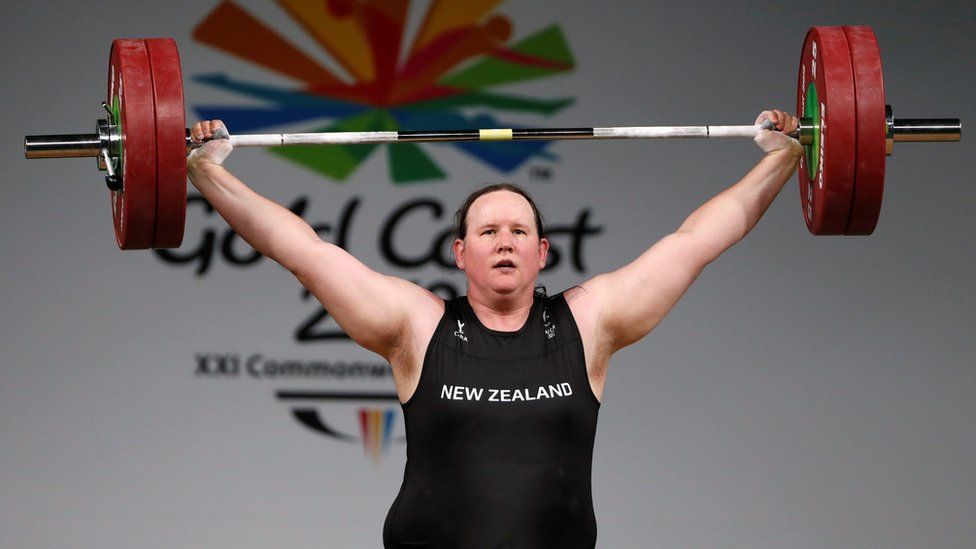New Zealand’s Laurel Hubbard has become the first ever transgender athlete picked to compete at an Olympics, in a controversial decision.
The New Zealand weightlifter Laurel Hubbard is poised to make history and headlines, as well as significant controversy, after being confirmed as the first transgender athlete to compete at an Olympic Games.
Officials have selected her for the women’s weightlifting team for Tokyo 2020, after qualifying requirements were recently modified.
She had competed in men’s events before coming out as transgender in 2013.
The 43-year-old, who will be the fourth oldest weightlifter at an Olympics, is regarded as a genuine medal contender in the women’s super heavyweight 87kg-plus category in Tokyo. But while her inclusion has been welcomed by trans groups, it has also been questioned by those who believe she has unfair advantages in strength and power, having gone through male puberty before transitioning in 2012.
She will compete in the women’s 87-kg weightlifting category.

The 43-year-old became eligible to compete at the Olympics when the International Olympic Committee (IOC) in 2015 changed its rules allowing transgender athletes to compete as a woman if their testosterone levels are below a certain threshold.
Testosterone is a hormone that increases muscle mass.
Hubbard, who won silver at the 2017 women’s world championships, said she was delighted to make the Olympics after recovering from a serious arm injury at the 2018 Commonwealth Games.
“I am grateful and humbled by the kindness and support that has been given to me by so many New Zealanders,” she said.
While the athlete’s testosterone levels are below that threshold, critics say her participation in the Olympics is still unfair for female-born athletes.
They have pointed to the biological advantages of those who have gone through puberty as males, such as increased bone and muscle density.
Last year, the scientists Emma Hilton and Tommy Lundberg found that the male performance advantage in weightlifting was 30% when compared to women. Their research indicated that even when transgender women suppressed testosterone for 12 months, the loss of lean body mass, muscle area and strength was only around 5%.
However the New Zealand Olympic Committee chief executive, Kereyn Smith, said it was right for Hubbard to be selected having met the IOC eligibility criteria – although she also recognised the debate between fairness and inclusion was a difficult one. “We acknowledge that gender identity in sport is a highly sensitive and complex issue requiring a balance between human rights and fairness on the field of play,” she added.
The head of Olympic Weightlifting New Zealand, Richie Patterson, said Hubbard had shown “grit and perseverance” to recover from a career-threatening 2018 injury.
“We look forward to supporting her in her final preparations towards Tokyo,” he said.
Some of Hubbard’s rivals, including the Belgian super-heavyweight weightlifter Anna Vanbellinghen, have previously claimed she will have an unfair advantage. Vanbellinghen stressed she fully supports the transgender community and that her comments were not a personal criticism of Hubbard. But she added: “Anyone that has trained weightlifting at a high level knows this to be true in their bones: this particular situation is unfair to the sport and to the athletes.”
In a statement the IOC said its guidance was under review and was being informed by “new developments, data, research, and learnings in the scientific and human rights sectors.”
But the women’s advocacy group, Fair Play for Women, said the latest science showed the IOC’s policy was no longer fit for purpose. “The IOC stated in its 2015 transgender guidelines that the overriding sporting objective is, and remains, the guarantee of fair competition,” its director, Nicola Williams, said. “But its current rules are blatantly unfair to women, and to trans gender women, who both want to play by rules which are fair to everybody.”
source:
